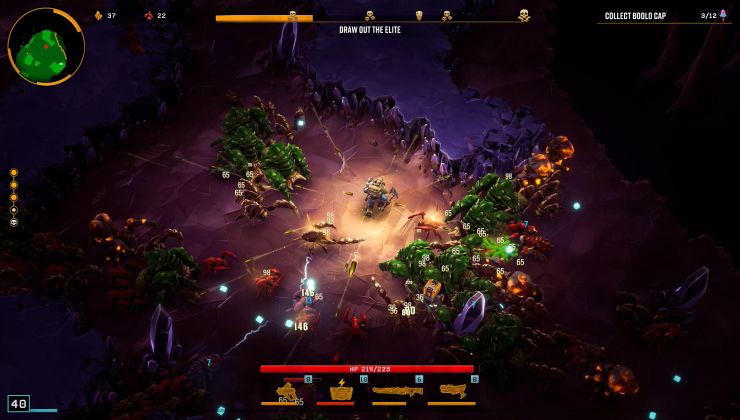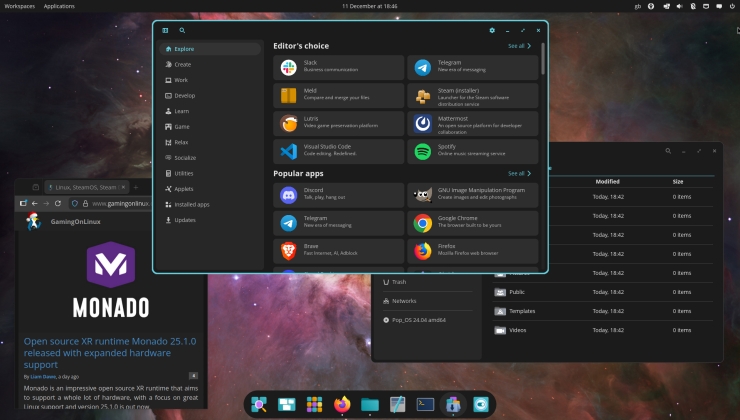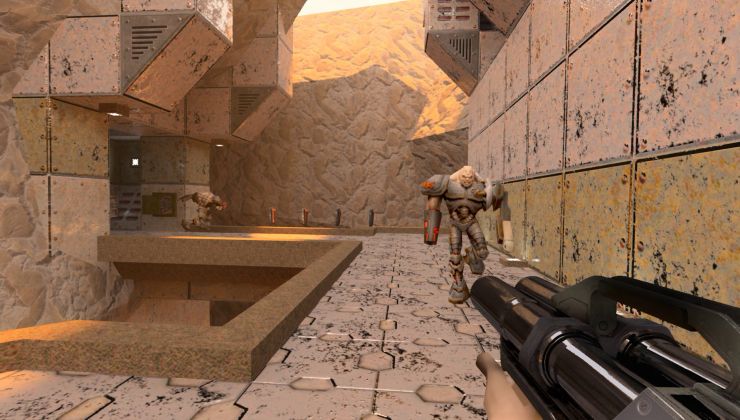While there's a huge focus on Flatpak and Flathub thanks to the Steam Deck shipping with it out of the box, Canonical on the other hand continue with their own Snap packaging and they have a Steam Snap in testing for Ubuntu (and other distros, since Snap also works elsewhere).
In a fresh introduction post on the Ubuntu Linux Discourse forum (thanks OMGUbuntu), it outlines how they're now actually "going all in on the gaming experience on Ubuntu and we’ve started building out a team dedicated to working on just that". Part of that is reducing the need for PPAs and other solutions, and their focus now is on Steam.
The call for testing has now begun on their Steam Snap package which gives you everything you need for Native Linux gaming and for Proton too. It's early days for the Steam Snap so expect issues but they said they will "iterate quickly, and respond to this feedback" on it.
On top of that we can expect more gaming on Ubuntu Linux improvements to come "such as providing easy ways to get more bleeding edge components like Mesa drivers, and even newer kernels and proprietary drivers" — that all sounds great to me.
It's not actually live yet but once it will be, I'll update the post here with instructions they give, which they will also post in the link above. Update: Canonical has now done an additional blog post, going over the instructions. Either install it from the website / Snap Store or via terminal: snap install steam --beta
With the blog post, Canonical once again reiterated their plan to improve Ubuntu gaming mentioning that "the Ubuntu Desktop team is getting down to work planning for the future, and improving the gaming experience features heavily in our priorities (and hiring plan!)". They go on to mention how "serious gamers" continue using Windows primarily, which we all know as Steam puts Linux at about 1% currently (see our Steam Tracker) but they hope by "improving the gaming experience, and the Steam experience in particular, we can ensure that Ubuntu can become a genuine daily driver for gamers".
Quoting: fagnerlnYou need to search in the complete changelog. A friend pointed they did that after reading it and said probably it was it when I mentioned that DS4 was working on pair with windows now.Quoting: tamodoloFedora 36 is the first Linux release that actually solves input delay to be on pair with windows. They did this unintentionaly as it was an issue related to touchpads. I am extremely happy by this fix as FINALY FINALY Linux is starting to move forward instead of just doing sidesteps and go anywhere.I'm following this release and didn't read anything about this, looks like gnome improved the way that it handles input to be on par to the FPS and not to the refresh rate.
What fedora 36 have to make it different?
Quoting: fagnerlnIt's a change on fedora's libinput. It isn't mentioned on keynotes.Quoting: tamodoloFedora 36 is the first Linux release that actually solves input delay to be on pair with windows. They did this unintentionaly as it was an issue related to touchpads. I am extremely happy by this fix as FINALY FINALY Linux is starting to move forward instead of just doing sidesteps and go anywhere.I'm following this release and didn't read anything about this, looks like gnome improved the way that it handles input to be on par to the FPS and not to the refresh rate.
What fedora 36 have to make it different?
Quoting: tamodoloIs this the key thing? "DS4 was working on pair with windows now"? So your problem was that the input lag existed when using a Dual Shock 4 controller? I think I've only used it once or twice on mine. I'm guessing this is without a wired connection?Quoting: fagnerlnYou need to search in the complete changelog. A friend pointed they did that after reading it and said probably it was it when I mentioned that DS4 was working on pair with windows now.Quoting: tamodoloFedora 36 is the first Linux release that actually solves input delay to be on pair with windows. They did this unintentionaly as it was an issue related to touchpads. I am extremely happy by this fix as FINALY FINALY Linux is starting to move forward instead of just doing sidesteps and go anywhere.I'm following this release and didn't read anything about this, looks like gnome improved the way that it handles input to be on par to the FPS and not to the refresh rate.
What fedora 36 have to make it different?
Bluetooth is... still pretty shit on Linux. Though they have miraculously tweaked / fixed it on the Steam Deck.
Quoting: slaapliedjeYeah. Input lag and consistency with gamepads on Linux is very very bad. I'm waiting SteamOS 3 to be released for PC to test it.Quoting: tamodoloIs this the key thing? "DS4 was working on pair with windows now"? So your problem was that the input lag existed when using a Dual Shock 4 controller? I think I've only used it once or twice on mine. I'm guessing this is without a wired connection?Quoting: fagnerlnYou need to search in the complete changelog. A friend pointed they did that after reading it and said probably it was it when I mentioned that DS4 was working on pair with windows now.Quoting: tamodoloFedora 36 is the first Linux release that actually solves input delay to be on pair with windows. They did this unintentionaly as it was an issue related to touchpads. I am extremely happy by this fix as FINALY FINALY Linux is starting to move forward instead of just doing sidesteps and go anywhere.I'm following this release and didn't read anything about this, looks like gnome improved the way that it handles input to be on par to the FPS and not to the refresh rate.
What fedora 36 have to make it different?
Bluetooth is... still pretty shit on Linux. Though they have miraculously tweaked / fixed it on the Steam Deck.
Quoting: tamodoloI actually haven't had a lot of issues with gamepads, but I tend to mostly use wired ones, with the exception of the Steam Controller.Quoting: slaapliedjeYeah. Input lag and consistency with gamepads on Linux is very very bad. I'm waiting SteamOS 3 to be released for PC to test it.Quoting: tamodoloIs this the key thing? "DS4 was working on pair with windows now"? So your problem was that the input lag existed when using a Dual Shock 4 controller? I think I've only used it once or twice on mine. I'm guessing this is without a wired connection?Quoting: fagnerlnYou need to search in the complete changelog. A friend pointed they did that after reading it and said probably it was it when I mentioned that DS4 was working on pair with windows now.Quoting: tamodoloFedora 36 is the first Linux release that actually solves input delay to be on pair with windows. They did this unintentionaly as it was an issue related to touchpads. I am extremely happy by this fix as FINALY FINALY Linux is starting to move forward instead of just doing sidesteps and go anywhere.I'm following this release and didn't read anything about this, looks like gnome improved the way that it handles input to be on par to the FPS and not to the refresh rate.
What fedora 36 have to make it different?
Bluetooth is... still pretty shit on Linux. Though they have miraculously tweaked / fixed it on the Steam Deck.
BT audio is where I have issues.






 How to setup OpenMW for modern Morrowind on Linux / SteamOS and Steam Deck
How to setup OpenMW for modern Morrowind on Linux / SteamOS and Steam Deck How to install Hollow Knight: Silksong mods on Linux, SteamOS and Steam Deck
How to install Hollow Knight: Silksong mods on Linux, SteamOS and Steam Deck